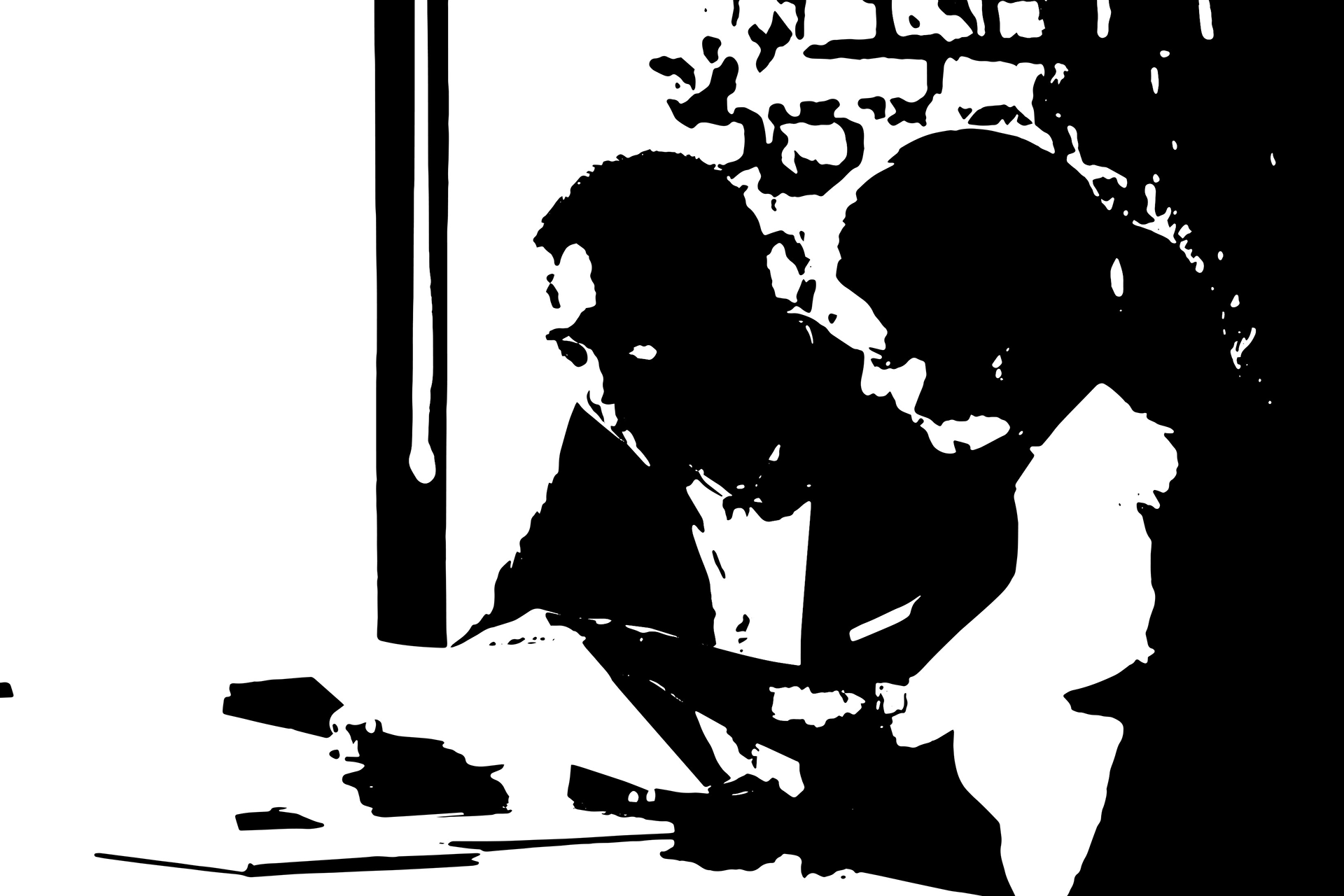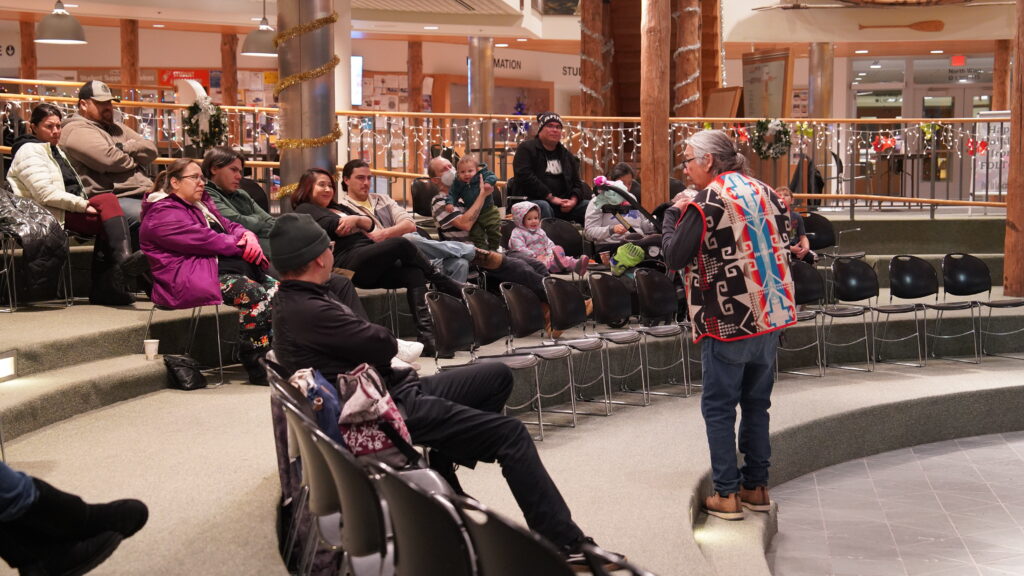
Quarterly
Grants
Four times per year, the Northland Foundation awards funding of $10,000 or more to nonprofit organizations and government entities working within our region.
Application deadlines are January 5, April 1, July 1, and October 1.
The Northland Foundation is a place-based funder serving a region of seven counties and all or parts of five Native nations. On a quarterly basis, we award competitive grants that fit within our grantmaking priorities (What We Fund, below).
How well applications align with our priorities is a major factor in the funding decision-making process. While there are nuances within each category, the most successful proposals will clearly address one or more priorities.
For Help With
Quarterly grant questions, email Michelle Ufford.
Grant portal and reporting questions, email Carol Chipman or call her at (218) 740-7309.

Quarterly Grants
Quarterly grants are aimed at the following types of entities, which may receive general operating or *program-restricted grants.
- Nonprofit 501(c)3 organizations
- Educational institutions/school districts*
- Tribal nations*
- Local governmental agencies*
As we consider grant requests, we are most excited by applicants whose work is led by and actively engages members of the community it intends to serve, and that seeks to help advance equity and inclusion.
Who We Fund
Activities must serve people in our service area , led by organizations that ideally have a presence here. Organizations without a physical location or staffing presence in the region are discouraged from applying.
LOCATION: Eligible applicants must be looking for funding that will engage, serve, or positively impact the people in our region. Applicant organizations are seeking funds to do work within the following areas.
- Minnesota counties of Aitkin, Carlton, Cook, Itasca, Koochiching, Lake, and/or St. Louis.
- Tribal nations of Bois Forte, Fond du Lac, Grand Portage, Leech Lake District 1, and/or Mille Lacs District 2.
TYPES OF ORGANIZATIONS: Quarterly grants are aimed at the following types of organizations.
- Nonprofit 501(c)3 organizations
- Groups using a fiscal sponsor with 501(c)3 status
- Educational institutions/school districts*
- Tribal nations*
- Local governmental agencies*
*Note: applicants that are 1) governmental organizations such as school districts, colleges or universities, or Tribal Nations, or 2) nonprofit 501(c)3 organizations that are headquartered or have operations outside of our geographic region are limited to
What We Fund
Quarterly grants can be used for general operating support and are flexible to help grantees meet their funding needs. General operating grants are only available to nonprofit 501(c)3 organizations that are headquartered and have a staffing presence in our geographic region. Grants may also be used for capacity-building efforts that strengthen the organization or improve service delivery.
Program restricted grants are available for nonprofit organizations that 1) have operations or are headquartered outside our region or 2) are governmental organizations, such as school districts, colleges or universities, or Tribal nations. Program-restricted grants can only be used to support a specific program and associated activities that take place in our service area.
The most successful proposals will clearly address one or more of the following five priorities.
1. Basic Needs
Services and programming that address human needs essential to overall wellbeing. Proposals can address one or more of the following basic needs categories.
- Food Security: Support for food access programming such as meal services, food banks and food shelves, and child hunger programs (summer meal programs, backpack programs, school-based pantries, etc.).
- Affordable Housing: Support for affordable housing programs or services that help increase opportunities for people to access quality affordable housing. Proposals should be for general operating or program support, not construction costs. Examples are programs that provide downpayment assistance, home ownership programming, and landlord/tenant rights education.
- Homeless Services: Support for services to people experiencing homelessness such as support for shelters, transitional housing, permanent supportive housing, or warming shelters.
- Aging: Providing services to help older adults age in place, such as caregiver support, grocery services, or meal services.
- Health and Wellbeing: Programs that support the health, wellness, and mental wellbeing of people who otherwise would not have access to these services. Examples are free health clinics, oral health care programs, and mental health services.
- Other Basic Needs: Services to people with disabilities, workforce programs, legal services, etc.
2. Belonging
Inequities exist in our society. Resources and opportunities are often limited based on place (where someone lives), race (skin color or cultural background), and class (economic status). Belonging seeks to support projects and initiatives designed to help everyone, especially those who are under-served or underrepresented in traditional power structures, to gain full and fair access to essentials like quality housing, education, and employment, and generally thrive. This may include broad, community-wide efforts or a specific focus on belonging within our existing priority areas.
3. Domestic and Sexual Violence
Prevention and intervention efforts in relation to domestic abuse and family violence, sexual assault, and human trafficking, such as shelter, advocacy, legal, and other supports or visitation programs that provide a place for safe and supervised parental visits.
4. Early Childhood Care and Education
Early care and education quality and access, parenting education, and supports. Note: the quarterly grant program does not include support for child care start-ups or child care operating expenses, but sometimes there is funding available for these activities through Special Grant Opportunities.
5. Out-of-School Time
Structured, consistent, and accessible out-of-school time educational programming and activities for broad groups of children and youth delivered by an organization whose primary focus is to serve youth/youth development.
Strategic Approaches We Encourage
High-impact programs and projects build in certain strategic approaches that can improve outcomes. We encourage including one or more of the following approaches in work considered for funding.
- Diversity, Equity, and Inclusion: Actively working to reach and reflect the diversity of communities served, facilitate inclusion, and counter systemic inequities—the limitations to full and fair opportunity that are rooted in geography, race/ethnicity, or income.
- Multi-Generational: Considering the needs of multiple generations when addressing an issue. For example, programs for children may include components for parents or grandparents.
- Collaboration: Working with other partners, including those from different sectors and particularly in collaboration with affected community members (“about us, not without us”), to tap their knowledge and lived experience, expand geographic or demographic reach, and strengthen results.
- Systems Change: Promoting civic engagement around opportunities to understand, participate in, and influence decisions and policies, especially among under-represented or traditionally excluded groups.
What We Do Not Fund
Ineligible organizations or activities typically include:
- Work taking place outside our geographic region and organizations seeking to do work in our region that do not have any physical location or staffing presence within our region.
- Capital campaigns or fundraising and requests primarily seeking support for capital projects.
- Requests specifically for the purchase of equipment without an associated programmatic component that aligns with our priorities.
- Fees, scholarships, or subsidies for student activities, including sports.
- One-time experiences, such as camps, trips, conferences, and events.
- Programs principally focused on the arts. We may consider projects that use the arts as a mechanism for work that more closely aligns with our priority areas.
- Individuals or for-profit businesses, except for Maada’ookiing grants to individuals or special initiatives involving for-profit businesses.
- Sectarian religious programs.
- Replacement of traditional government services or public funding that has been cut.
- Lobbying or political activities.
When We Fund
Application deadlines are January 5, April 1, July 1, and October 1.
Applications are submitted using our web-based grants portal.
Applications that meet eligibility criteria are reviewed by our grant committee, which meets 3-4 weeks following each quarterly deadline. Applications that move forward after this review will receive a site visit. Those that do not move on will be notified after the committee meets.
For proposals that receive funding, applicants will be notified approximately 90 days after the application deadline.
Grant payments are made approximately 30 days after the grant award. (Grant documents must be completed prior to payments being made).
Apply/Report
Before You Apply
We understand the time and effort it takes to prepare a grant application and want to help avoid wasting anyone’s time.
Before applying for a quarterly grant, please send a brief email to grants@northlandfdn.org. Include 1) organization name, 2) a brief description of the proposal, communities, or populations to be served, and 3) anticipated amount of request. Grant program staff may want to connect with you to learn more about your proposed plans before you apply.
- $10,000 is the minimum quarterly grant amount. Application deadlines are January 5, April 1, July 1, and October 1.
- Carefully review the Who We Fund/Eligibility and What We Fund/Priorities tab.
- You can review the application questions ahead of time as a Word doc or pdf.
- The most current version of Google Chrome is the recommended web browser. You may download Chrome here.
- NOTE: There are different applications and deadlines to apply for Youth In Philanthropy and Maada’ookiing grants.
Apply for a Quarterly Grant
Use this link to start a new grant application.
Report on an Existing Grant
Use this link to continue working on a grant application or to submit a grant report.